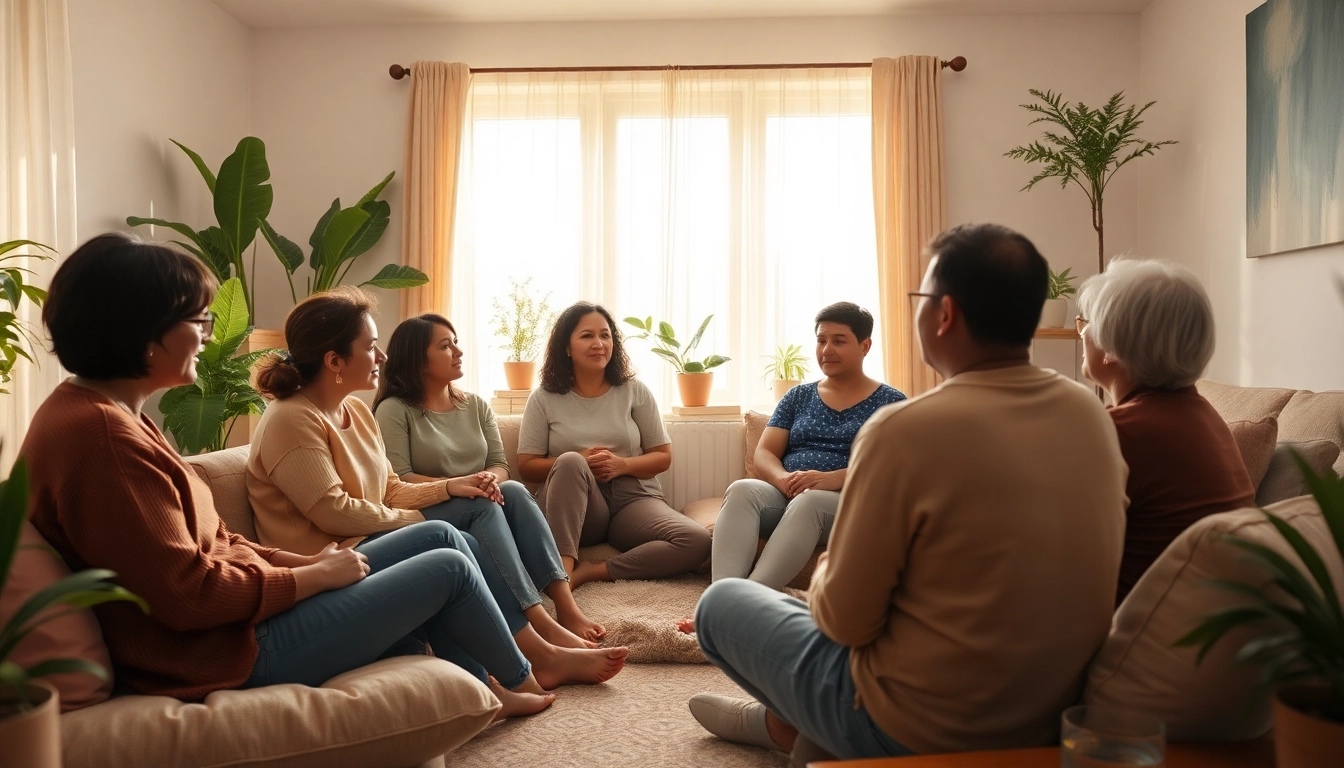Anxiety is a prevalent mental health issue that affects millions of people worldwide. If you have ever felt overwhelmed by fear, worry, or unease, you are not alone. Many individuals grapple with anxiety at different levels, and acknowledging this is the first step in dealing with it. In today’s fast-paced world, understanding how to cope with anxiety is essential for maintaining mental well-being. This comprehensive guide will explore effective methods for dealing with anxiety, from understanding its roots to building a supportive community.
Understanding Anxiety Disorders
Definition and Types of Anxiety
Anxiety disorders are a group of mental health conditions characterized by excessive and persistent worry, fear, or apprehension. They can interfere with daily life, affecting relationships, work, and other areas of functioning. The main types of anxiety disorders include:
- Generalized Anxiety Disorder (GAD): Marked by chronic, exaggerated worry about daily life events without a specific cause.
- Panic Disorder: Involves recurrent panic attacks that cause intense physical symptoms, leading to fear of future attacks.
- Social Anxiety Disorder: Characterized by an intense fear of social situations and embarrassment, hindering one’s ability to engage in everyday interactions.
- Obsessive-Compulsive Disorder (OCD): Involves unwanted repetitive thoughts (obsessions) and behaviors (compulsions) that one feels driven to perform.
- Post-Traumatic Stress Disorder (PTSD): Develops after experiencing or witnessing a traumatic event, causing flashbacks, nightmares, and severe anxiety.
Common Symptoms of Anxiety Disorders
The symptoms of anxiety can vary widely from person to person but often include:
- Restlessness or feeling on edge
- Fatigue or difficulty concentrating
- Muscle tension
- Sleep disturbances such as insomnia
- Irritability
- Physical symptoms like rapid heartbeat, sweating, or digestive issues
Recognizing these symptoms is crucial for seeking the right help and support. It’s important to remember that while everyone experiences anxiety at times, chronic symptoms that persist require more attention and care.
Causes and Triggers of Anxiety
The causes of anxiety disorders are multifaceted and can include a combination of genetic, environmental, and psychological factors. Some common triggers may include:
- Genetics: A family history of anxiety or other mental health disorders can increase the likelihood of experiencing anxiety.
- Life Events: Stressful life events such as a divorce, job loss, or trauma can trigger anxiety symptoms.
- Health Issues: Chronic health conditions or serious illnesses can contribute to feelings of anxiety.
- Chemical Imbalances: Neurotransmitter imbalances in the brain can affect mood and anxiety regulation.
Understanding what triggers your anxiety can be key to learning effective coping strategies.
Effective Techniques for Dealing with Anxiety
Mindfulness and Relaxation Strategies
Mindfulness involves focusing on the present moment while acknowledging and accepting your feelings, thoughts, and bodily sensations. Techniques include:
- Deep Breathing Exercises: Practicing deep, controlled breathing can reduce feelings of anxiety and promote relaxation.
- Meditation: Regular meditation can help in calming the mind and reducing anxiety levels over time.
- Yoga: Incorporating yoga into your routine may improve both physical and mental health, aiding in the relief of anxious feelings.
Research indicates that mindfulness and relaxation techniques can forge a direct path towards anxiety reduction, often improving overall mental health.
Cognitive Behavioral Techniques
Cognitive Behavioral Therapy (CBT) is an effective treatment for anxiety disorders. It focuses on identifying negative thought patterns and behavior, then replacing them with more positive, realistic viewpoints. Key techniques include:
- Thought Records: Keep a journal to document anxious thoughts and the situations triggering them.
- Exposure Therapy: Gradually confronting fears in a controlled manner can help reduce anxiety over time.
- Positive Affirmations: Use positive statements to challenge negative thoughts and boost confidence.
Working with a therapist trained in CBT can provide personalized strategies catered to your unique experiences.
Physical Activity and Its Benefits
Engaging in regular physical activity is one of the most effective natural treatments for anxiety. Exercise can:
- Release Endorphins: Physical activity stimulates the production of endorphins that improve mood.
- Reduce Muscle Tension: Exercise can relieve tension built up in the body, promoting relaxation.
- Boost Confidence: Achieving fitness goals can lead to improved self-esteem and body image.
Even simple activities like walking, dancing, or practicing sports can significantly decrease anxiety symptoms.
Building a Support System
How to Talk About Your Anxiety
Opening up about your anxiety can be daunting, but sharing your feelings with trusted individuals is crucial for receiving support. Tips for discussing anxiety include:
- Choose a comfortable environment where you can talk freely.
- Use “I” statements to express how anxiety affects you personally.
- Be open to their responses and encourage questions for better understanding.
Talking about your struggle can foster connections and understanding, encouraging awareness and support from loved ones.
Finding Professional Help
If anxiety becomes overwhelming, seeking professional guidance is highly encouraged. A mental health professional can provide:
- Diagnosis: Properly identifying the type of anxiety disorder you may be experiencing.
- Therapeutic Techniques: Tailored treatments like medication, therapy, or lifestyle adjustments to assist in managing anxiety.
- Continued Support: Regular therapy sessions can create an ongoing support network for individuals facing anxiety challenges.
Online platforms have also made it easier than ever to access therapy, providing virtual assistance to those in need.
Support Groups and Peer Network
Joining a support group can provide a sense of belonging and understanding among people who share similar struggles. Benefits include:
- Shared Experiences: Hearing others’ stories can normalize your feelings and help you feel less isolated.
- Providing and Receiving Support: Encouraging one another can significantly aid in coping with anxiety.
- Access to Resources: Support groups often share valuable coping strategies and professional resources.
Being part of a supportive community fosters resilience and promotes healing.
Self-Care Practices for Managing Anxiety
Nutrition and Anxiety Relief
Diet plays a crucial role in managing anxiety symptoms. Incorporating foods that promote well-being can aid in reducing anxiety levels. Consider the following:
- Complex Carbohydrates: Foods like whole grains can increase serotonin levels in the brain, improving mood.
- Omega-3 Fatty Acids: Found in fish like salmon, these fats are linked to reduced anxiety and depression.
- Fruits and Vegetables: A diet rich in vitamins and antioxidants can improve overall mental health.
Being mindful of what you eat can offer tangible benefits in managing anxiety.
Sleep Hygiene Tips
Sleep and anxiety are closely intertwined; poor sleep can exacerbate anxiety symptoms. To cultivate better sleep hygiene:
- Establish a regular sleep schedule by going to bed and waking up at the same time each day.
- Create a calming bedtime routine, such as reading or meditative practices.
- Avoid screens and heavy meals before bedtime to promote better sleep quality.
Quality sleep can rejuvenate the mind and contribute significantly to anxiety management.
Journaling and Creative Expression
Writing can be a powerful tool for reflecting on emotions and thoughts. Creative outlets can include:
- Journaling: Documenting your feelings can help identify patterns in anxiety triggers.
- Art Therapy: Engaging in artistic activities can be a therapeutic way to express emotions and alleviate stress.
- Creative Writing: Poetry or storytelling can be an effective coping mechanism for processing feelings.
Integrating creativity into your life can enhance emotional resilience and provide an effective coping strategy.
Long-Term Strategies for Managing Anxiety
Setting Realistic Goals
Establishing achievable, clearly defined goals can cultivate a sense of accomplishment and better manage anxiety. When setting goals:
- Ensure they are Specific, Measurable, Achievable, Relevant, and Time-bound (SMART).
- Break larger goals into smaller steps to make them less daunting.
- Celebrate progress, regardless of how small it may seem.
Maintaining a proactive approach can shift focus from anxiety to personal growth and motivation.
Continuous Learning About Anxiety
Educating yourself about anxiety can empower you to manage it more effectively. Consider:
- Reading books or articles about anxiety and its treatment to gain a deeper understanding.
- Engaging with online resources or workshops that focus on coping strategies.
- Learning about new evidence-based treatments or therapies that you can apply in your life.
Knowledge can provide clarity and comfort as you navigate your journey with anxiety.
Tracking Progress and Adjusting Techniques
Keeping track of your progress over time can help identify which strategies work best for you. This can include:
- Keeping a log of anxiety levels, triggers, and effective coping strategies.
- Regularly assessing which techniques have been most beneficial to your well-being.
- Adjusting your coping mechanisms based on what is effective and what is not, cultivating a flexible approach.
Tracking and adjusting techniques fosters resilience and personal growth in managing anxiety.



